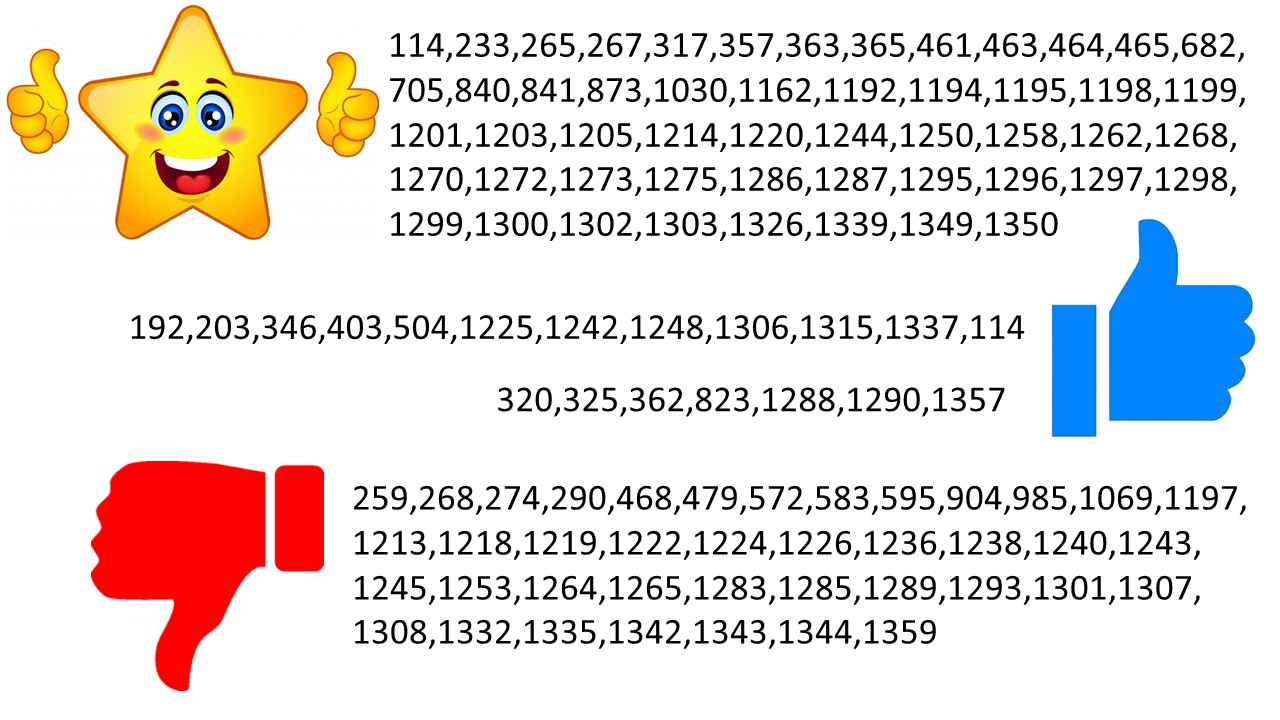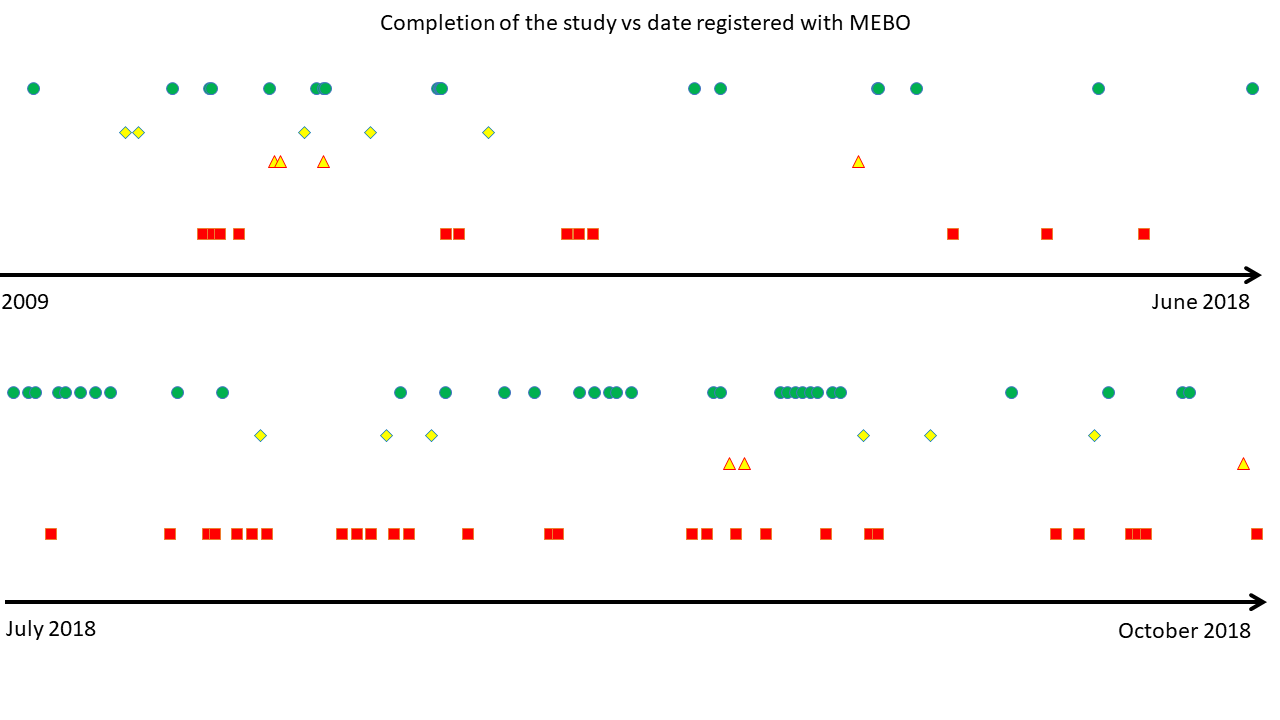reproduced from Aurametrix blog

Over hundred people agreed to participate in our study. Half of them went through all the steps and let us see results of all their test kits (last digits of their IDs are listed next to the image of a star with thumbs up). Over a dozen submitted questionnaire with one or two samples - which was also very helpful. And almost half did not do anything (listed next to the red thumbs down sign). We understand that unforeseeable things happen, and commitments may be difficult to fulfill. Still, it is worth to look if there is anything in common among those who did not submit samples and QoL questionnaires. Were those mostly our "new friends"?

Over hundred people agreed to participate in our study. Half of them went through all the steps and let us see results of all their test kits (last digits of their IDs are listed next to the image of a star with thumbs up). Over a dozen submitted questionnaire with one or two samples - which was also very helpful. And almost half did not do anything (listed next to the red thumbs down sign). We understand that unforeseeable things happen, and commitments may be difficult to fulfill. Still, it is worth to look if there is anything in common among those who did not submit samples and QoL questionnaires. Were those mostly our "new friends"?
The figure shows when participants of our trial were registered with MEBO - before or after the first stages of our uBiome study. Percentage of those who did not return any samples was 30% for those who participated in prior MEBO activities vs 40% for newly signed individuals. (The ratio of our Study "Stars" vs those who did not return the kits to those who returned all kits and answered associated QoL questions was 60% for "old friends" vs 80% for "new friends"). Yet, the figure shows that "stars" (green circles) and "no-shows" (red squares) tend to "cluster", and possibly associate together. Perhaps associations are indicators of the values we value? Show me your true friends and I'll tell you who you are?
REFERENCES
Al-Hamadi H, Chen R. Trust-based decision making for health IoT systems. IEEE Internet of Things Journal. 2017 Aug 4;4(5):1408-19.
Guo J, Chen R, Tsai JJ. A survey of trust computation models for service management in internet of things systems. Computer Communications. 2017 Jan 1;97:1-4.
Ahmed AI, Ab Hamid SH, Gani A, Khan MK. Trust and reputation for Internet of Things: Fundamentals, taxonomy, and open Research Challenges. Journal of Network and Computer Applications. 2019 Jul 26:102409.
Tang R, Lu L, Zhuang Y, Fong S. Not every friend on a social network can be trusted: an online trust indexing algorithm. In2012 IEEE/WIC/ACM International Conferences on Web Intelligence and Intelligent Agent Technology 2012 Dec 4 (Vol. 3, pp. 280-285). IEEE.
Arulselvi AC, Sendhilkumar S, Mahalakshmi GS. Provenance based Trust computation for Recommendation in Social Network. InProceedings of the International Conference on Informatics and Analytics 2016 Aug 25 (p. 114). ACM.
Sherchan W, Nepal S, Paris C. A survey of trust in social networks. ACM Computing Surveys (CSUR). 2013 Aug 1;45(4):47.
REFERENCES
Al-Hamadi H, Chen R. Trust-based decision making for health IoT systems. IEEE Internet of Things Journal. 2017 Aug 4;4(5):1408-19.
Guo J, Chen R, Tsai JJ. A survey of trust computation models for service management in internet of things systems. Computer Communications. 2017 Jan 1;97:1-4.
Ahmed AI, Ab Hamid SH, Gani A, Khan MK. Trust and reputation for Internet of Things: Fundamentals, taxonomy, and open Research Challenges. Journal of Network and Computer Applications. 2019 Jul 26:102409.
Tang R, Lu L, Zhuang Y, Fong S. Not every friend on a social network can be trusted: an online trust indexing algorithm. In2012 IEEE/WIC/ACM International Conferences on Web Intelligence and Intelligent Agent Technology 2012 Dec 4 (Vol. 3, pp. 280-285). IEEE.
Arulselvi AC, Sendhilkumar S, Mahalakshmi GS. Provenance based Trust computation for Recommendation in Social Network. InProceedings of the International Conference on Informatics and Analytics 2016 Aug 25 (p. 114). ACM.
Sherchan W, Nepal S, Paris C. A survey of trust in social networks. ACM Computing Surveys (CSUR). 2013 Aug 1;45(4):47.


It was helpful and informative. This helped me a lot.Thanks for sharing these amazing tips (Autonomous Communication)
ReplyDelete